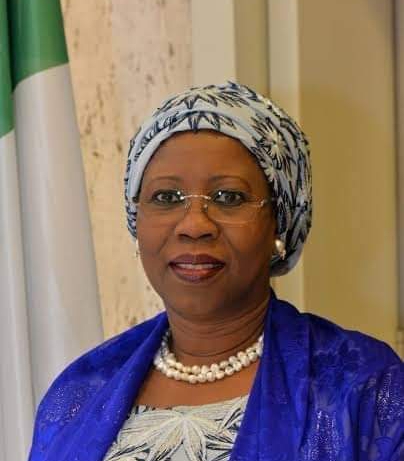Broadband internet penetration in Nigeria has increased from 33.72 percent in August 2019 to 43.3 percent in August 2020.
The minister in charge of the Ministry of Communication and Digital Economy, Isa Pantami, said this at the World Information Development Day in Abuja on Saturday.
“When I assumed office on the 21st of August 2019, the official broadband penetration figures stood at 33.72%. It increased with the subsequent monthly figures from end of August 2019 to end of August 2020, where it stood at 43.3%,” he added.
Broadband is a key component of any digital economy and it is not merely for entertainment, the minister noted.
In April 2019, broadband penetration increased to 33.70 per cent before dropping slightly to 33.13 per cent in May 2019.
In June, July and August 2019, broadband penetration increased to 33.31 per cent, 33.72 per cent and 35.10 per cent respectively.
Between September and October 2019, the penetration had another steady growth to reach 35.40 per cent, and 37.87 per cent, before dropping slightly again in November same year to 37.71 per cent.
It increased to 37.80 per cent in December 2019, before maintaining another steady growth from January to March 2020, to reach 38.49 per cent, 39.58 per cent, and 39.85 per cent respectively, before dropping slightly to 39.54 per cent in April 2020.
As at July 2020, it was at 40.1 per cent, up from 33.72 per cent in August, 2019.
Mr Pantami said this is a major achievement of the ministry after the change of name in 2019.
The Federal Ministry of Communications Technology was changed to the Federal Ministry of Communications and Digital Economy, in October 2019 by President Muhammadu Buhari.
Mr Pantami said the ministry through its supervisory agencies has developed many policies and regulatory instruments to enable it to deliver on its mandate.
The polices, the minister said, are designed to address some of the prolonged concerns in the information and communication technology sector to support the development of the digital economy.
The ministry recently provided online learning platforms to enable Nigerians to receive training in diverse digital skills.
“Such platforms include the DigitalNigeria.gov.ng platform and NITDA Academy for Research and Training,” he said
Mr Pantami said over 114,000 Nigerians have enrolled on these platforms, including about 67,000 enrolees since the official launch of the Digital Nigeria portal on September 28.
Rather, empirical evidence has shown that it can help to significantly improve economic indices, create jobs and lift people out of extreme poverty.
The issue of Right of Way Issue (RoW), that had lingered for over a decade, has been addressed.
The Nigeria Governors Forum (NGF) agreed to approve N145 as the ROW charges.
Mr Pantami said: “Many State Governors have now approved the RoW charges of N145 per metre and some have even cancelled the fee all together.
“We have also developed an IT clearance portal to support inoperability, eliminate duplication and ensure value for money in the implementation of ICT projects in the country. The IT Projects Clearance programme has saved over N5 billion for the Federal Government.”
One of such programmes is the National Adopted Village for Smart Agriculture (NAVSA); it is part of the implementation of NDEPS for the agricultural sector.
He also said that privacy concerns are also being addressed through the Nigeria Data Protection Regulation (NDPR) 2019 and the Guidelines for the Management of Personal Data by Public Institutions 2020, according to the minister.
The guidelines were released bearing in mind the need to use personal data to mitigate the effects of the COVID-19 pandemic in particular and other situations where the need arises.
Mr Pantami also said that the National Data Protection Regulation(NDPR) performance report showed a lot of success stories, including the creation of 2,686 direct job roles, creating massive opportunities for young Nigerians to be recruited as Data Protection Officers, Data Protection Compliance Organizations(DPCOs), compliance officers, among others.ADVERTISEMENT
The DPCOs have also earned over two billion naira in the first year of implementation
“Based on the Q2 2020 GDP Report by the National Bureau of Statistics, ICT contributed an unprecedented 17.83% to the GDP,” he said.
Source: Premium Times









